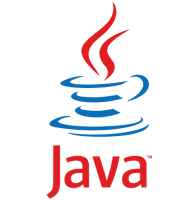Difference HashMap and LinkedHashMap contains data in key value pair. TreeMap also contains data in key value pair but it is sorted according to natural ordering (ascending order). Map<Integer, String> codeCityHashMap = new HashMap<Integer, String>(); codeCityHashMap.put(11, "Delhi"); codeCityHashMap.put(22, "Mumbai"); codeCityHashMap.put(33, "Kolkata"); codeCityHashMap.put(44, "Chennai"); Map<Integer, String> codeCityLinkedHashMap = new LinkedHashMap<Integer, String>(); codeCityLinkedHashMap.put(11, "Delhi"); codeCityLinkedHashMap.put(22, "Mumbai"); codeCityLinkedHashMap.put(33, "Kolkata"); codeCityLinkedHashMap.put(44, "Chennai"); Map<Integer, String> codeCityTreeMap = new TreeMap<Integer, String>(); codeCityTreeMap.put(44, "Chennai"); codeCityTreeMap.put(11, "Delhi"); codeCityTreeMap.put(33, "Kolkata"); codeCityTreeMap.put(22, "Mumbai...



Comments
Post a Comment